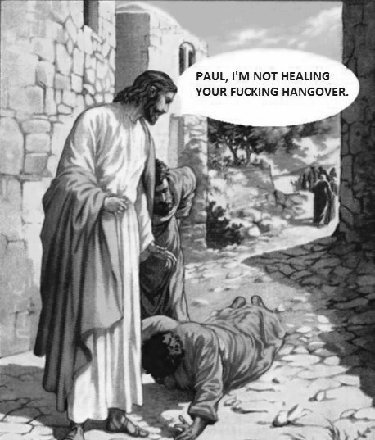Category Archive 'Religion'
28 Aug 2015


A leading climate scientist at work.
Ari H. has a good essay offering a list of reasons why Climate Change Alarmism resembles a religious cult.
The alarmist movement stubbornly refuses to debate its dogma, calling it “settled science†and viciously attacking its critics. The attacks are not limited to name calling but include prohibiting scientific research that contradicts this dogma. Significant figures within the movement call for criminal persecution of those who publicly disagree with the dogma and, in some cases, for those who do not follow it. Proposed punishments for “heretics†and “infidels†include prison and even death.
The alarmist movement has a formal doctrine-setting body — the Intergovernmental Panel on Climate Change (IPCC). The reports and summaries by this body are considered by the alarmists to be the main source of authority on all things related to climate, energy, the biological cycle, and consequentially, everything else. The cult followers (individuals, organizations, and even governments) regularly quote these unholy texts and use them to justify their decisions.
The alarmist movement has its own priest class: taxpayer-funded impostor “climate scientists†who have no independent (of the climate alarmism) scientific achievements. Frequently, they do not even have scientific degrees. The alarmists sincerely believe that only members of the priest class are capable of understanding and seriously discussing “climate science.†Physicists, biologists, meteorologists, engineers, mathematicians, and other outsiders need not apply. …
The climate change cult appears to worship the computer models that its shamans built with their own hands — literally man-made idols. Needless to say, much of the content of IPCC’s texts comes from these computer models. …
The alarmists appeal to medieval science errors. These errors can be described as beliefs that nature has existed forever in some unchanged state. The inability of a common man or a medieval scientist to observe such changes was the cause of these beliefs. The alarmists revive these errors by denying, ignoring, or underestimating natural climate change; evolution (including species’ disappearance and adaptation); higher CO2levels in the geological past; natural sea level increases in the current interglacial period; tectonic movement; the complex trajectory of the Earth’s motion around the Sun; and the astronomic observations of stars similar to the Sun.
Read the whole thing.
25 Feb 2015

Eric Fischl, The Old Man’s Boat and the Old Man’s Dog, 1982. –Our time’s version of The Raft of the Medusa.
And Dan Greenfield argues that it really does not do a terribly good job.
Liberalism has become a revolt against the middle class that its grandparents struggled to reach, a rejection of their “materialism” while substituting the “ethical materialism” of liberalism in its place that envisions a much smaller upper and middle class that derives its wealth and power not from hard work in the private sector, but highly profitable social justice volunteerism in the public sector.
An American Dream of universal prosperity has been pitted against the left’s dream of a benevolent feudal system in which the few will be very well paid to oversee the income equality of the many.
18 Aug 2014


Thomas Hobbes has a little fun imagining a future very different from the present.
The triumph of the Recovery was marked most clearly by the burning of the Episcopal bishop of Maine.
She was not a particularly bad bishop. She was in fact typical of Episcopal bishops of the first quarter of the 21st century: agnostic, compulsively political and radical, and given to placing a small idol of Isis on the altar when she said the Communion service. By 2055, when she was tried for heresy, convicted, and burned, she had outlived her era. By that time only a handful of Episcopalians still recognized female clergy, it would have been easy enough to let the old fool rant out her final years in obscurity.
The fact that the easy road was not taken, that Episcopalians turned to their difficult duty of trying and convicting, and the state upheld its unpleasant responsibility of setting torch to faggots, was what marked this as an act of Recovery. I well remember the crowd that gathered for the execution, solemn but not sad, relieved rather that at last, after so many years of humiliation, of having to swallow every absurdity and pretend we liked it, the majority had taken back the culture. No more apologies for the truth. No more “Yes, buts†on upholding standards. Civilization had recovered its nerve. The flames that soared above the lawn before the Maine State House were, as the bishopess herself might have said, liberating.
Read the whole thing.
Hat tip to Vanderleun.
13 Jul 2014


Michael Robbins, at Slate, reviews Nick Spencer’s Atheists: The Origin of the Species, which seems to constitute a well-deserved attack on the “New Atheists,” i.e., the smug, self-congratulatory secular materialists of the Richard Dawkins-ilk.
Nietzsche realized that the Enlightenment project to reconstruct morality from rational principles simply retained the character of Christian ethics without providing the foundational authority of the latter. Dispensing with his fantasy of the Ãœbermensch, we are left with his dark diagnosis. To paraphrase the Scottish philosopher Alasdair MacIntyre, our moral vocabulary has lost the contexts from which its significance derived, and no amount of Dawkins-style hand-waving about altruistic genes will make the problem go away. (Indeed, the ridiculous belief that our genes determine everything about human behavior and culture is a symptom of this very problem.)
The point is not that a coherent morality requires theism, but that the moral language taken for granted by liberal modernity is a fragmented ruin: It rejects metaphysics but exists only because of prior metaphysical commitments. A coherent atheism would understand this, because it would be aware of its own history. Instead, trendy atheism of the Dawkins variety has learned as little from its forebears as from Thomas Aquinas, preferring to advance a bland version of secular humanism. Spencer quotes John Gray, a not-New atheist: “Humanism is not an alternative to religious belief, but rather a degenerate and unwitting version of it.†How refreshing would be a popular atheism that did not shy from this insight and its consequences.
It is, I suppose, perversely amusing, and confirming of Chesterton’s prediction that, post Religion, people will not believe in nothing, but will believe in anything, that the typical contemporary enlightened elite position involves both the contemptuous rejection of traditional religion and the uncritical acceptance of an even-more-simplistic catechism composed of sentimental humanitarianism constituting a sort of attenuated Christianity, sexually-emancipated but even more enthusiastic about ressentiment.
01 Jul 2014


Sir Thomas More
My pseudointellectual liberal classmates have been reacting to the Supreme Court decision in favor of Hobby Lobby, excusing religious employers from providing contraception through employee health insurance, with ridicule, treating the very idea of moral reservations toward contraception as bizarre, insane, and a fringe position.
But the civilization of Europe and the Modern World were actually built by people of traditional religious faith, who until very recently in overwhelming percentage believed on the basis of revealed religion that contraception was wrong. I am not myself a believer, but I differ from most of my Yale classmates in declining to believe that today’s community of fashion has arrived at some uniquely superior and sophisticated position on every issue and that anyone who disagrees is some sort of troglogyte.
Thomas Babbington Macauley was the ultimate Whig historian, but even Macauley found himself obliged to acknowledge that Modernism and Scientism are not actually competent to refute religious faith.
Natural theology, then, is not a progressive science. That knowledge of our origin and of our destiny which we derive from revelation is indeed of very different clearness, and of very different importance. But neither is revealed religion of the nature of a progressive science. All divine truth is, according to the doctrine of the Protestant churches, recorded in certain books. It is equally open to all who, in any age, can read those books; nor can all the discoveries of all the philosophers in the world add a single verse to any of those books. It is plain, therefore, that in divinity there cannot be a progress analogous to that which is constantly taking place in pharmacy, geology, and navigation. A Christian of the fifth century with a Bible is neither better nor worse situated than a Christian of the nineteenth century with a Bible, candor and natural acuteness being, of course, supposed equal. It matters not at all that the compass, printing, gunpowder, steam, gas, vaccination, and a thousand other discoveries and inventions, which were unknown in the fifth century, are familiar to the nineteenth. None of these discoveries and inventions has the smallest bearing on the question whether man is justified by faith alone, or whether the invocation of saints is an orthodox practice. It seems to us, therefore, that we have no security for the future against the prevalence of any theological error that ever has prevailed in time past among Christian men. We are confident that the world will never go back to the solar system of Ptolemy; nor is our confidence in the least shaken by the circumstance that even so great a man as Bacon rejected the theory of Galileo with scorn; for Bacon had not all the means of arriving at a sound conclusion which are within our reach, and which secure people who would not have been worthy to mend his pens from falling into his mistakes. But when we reflect that Sir Thomas More was ready to die for the doctrine of transubstantiation, we cannot but feel some doubt whether the doctrine of transubstantiation may not triumph over all opposition. More was a man of eminent talents. He had all the information on the subject that we have, or that, while the world lasts, any human being will have. The text, “This is my body,†was in his New Testament as it is in ours. The absurdity of the literal interpretation was as great and as obvious in the sixteenth century as it is now. No progress that science has made, or will make, can add to what seems to us the overwhelming force of the argument against the real presence. We are, therefore, unable to understand why what Sir Thomas More believed respecting transubstantiation may not be believed to the end of time by men equal in abilities and honesty to Sir Thomas More. But Sir Thomas More is one of the choice specimens of human wisdom and virtue; and the doctrine of transubstantiation is a kind of proof charge. A faith which stands that test will stand any test.
11 May 2013

In Roermond, The Netherlands, the headstones of two members of a mixed Protestant-Catholic marriage manage to overcome strict 19th century religious divisions.
Atlas Obscura story.
Hat tip to Karen L. Myers.

Feeds
|














